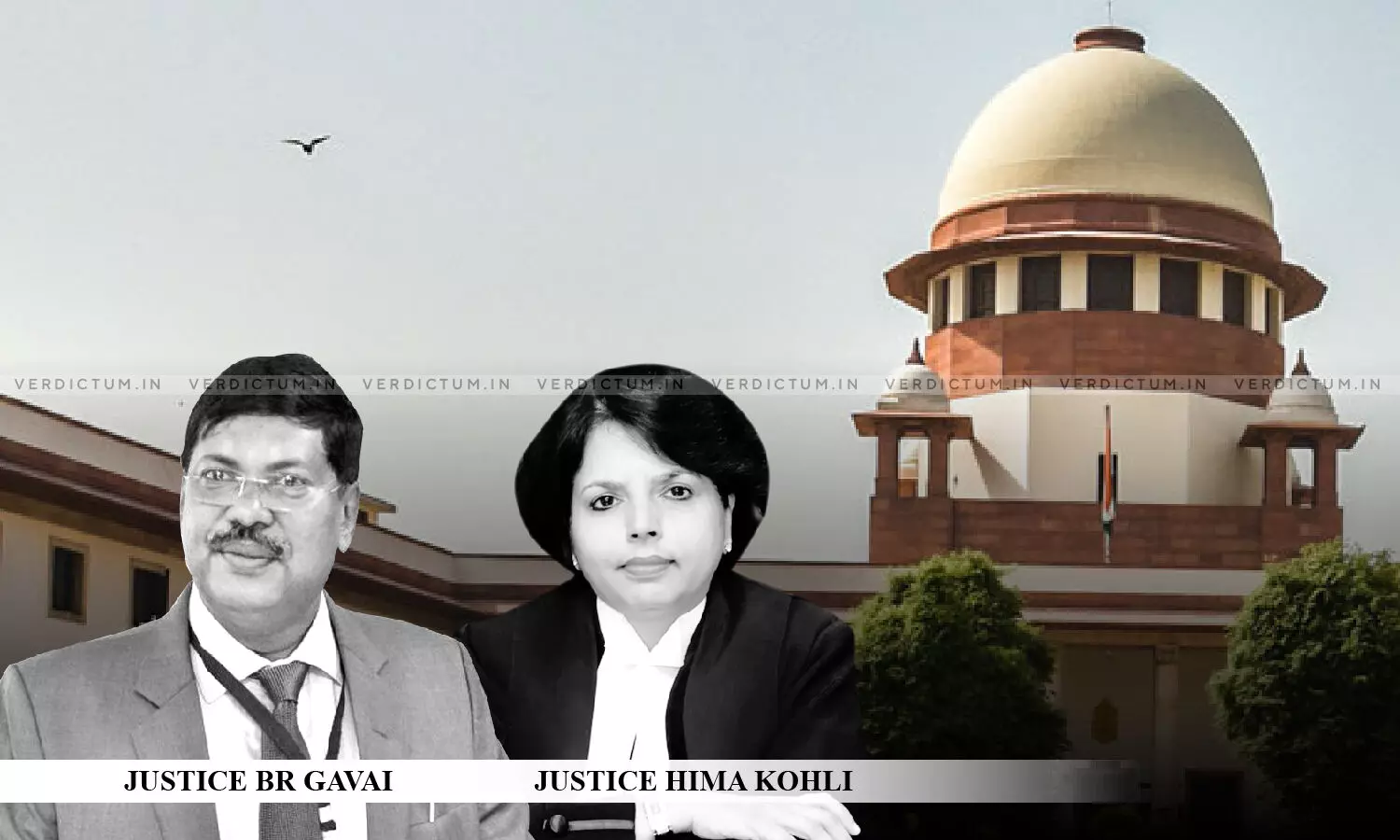
Constitutional Courts Orders Shall Prevail Over Statutory Tribunals Orders - SC On Conflicting Orders Passed By NGT And High Court
 |
|The Supreme Court has held that the orders passed by the constitutional courts, would prevail over the orders passed by the statutory tribunals, in case where two conflicting orders were passed by them. The bench of Justice B.R. Gavai and Justice Hima Kohli while hearing an appeal involving National Green Tribunal (NGT) also held that Tribunals are subordinate to High Courts.
In this case the appellant-State of Andhra Pradesh was running a resort at Rushikonda Hill, near Visakhapatnam. According to the appellant, after obtaining the necessary permission, it had demolished the existing resort and was reconstructing the resort at the same place with additional facilities.
A writ petition was filed before the Andhra Pradesh High Court challenging the said construction where the High Court ordered that the construction shall be done in accordance to the permission accorded by the Ministry of Environment and Forest and Climate Change.
A letter addressed by the respondent, who is a sitting Member of Parliament from one of the constituencies in the Andhra Pradesh, was sent to the NGT. NGT appointed an Experts Committee and as per its report no violation in the construction was found. However NGT again appointed a 2nd Experts Committee. The report of the said 2nd Experts Committee was still awaited. The NGT without waiting for the said report, directed that no further construction shall be undertaken by the appellant.
The appellant filed an application for vacating stay on construction however, the same was also rejected by the NGT. Aggrieved by this, the appellant moved Supreme Court.
Senior Advocate, Abhishek Manu Singhvi, appeared for the appellant whereas Balaji Srinivasan, Advocate On Record, appeared on behalf of respondents.
Senior Counsel appearing on behalf of the appellant, submitted that when the High Court of competent jurisdiction was already in seisin of the matter, the NGT could not have entertained a lis with regard to the same cause of action. He further submitted that though this fact was brought to the notice of the NGT, it refused to vacate the interim order which was in conflict with the order of the High Court.
He argued that NGT is a Tribunal, which is subordinate to the High Court in so far as the territorial jurisdiction of the High Court is concerned. He, therefore, submitted that the continuation of the proceedings before the NGT was not sustainable in law.
On the contrary, respondent's counsel submitted that the appellant had acted in gross breach of the order passed by the Andhra Pradesh High Court at Amravati. He further submitted that the construction was rampantly going on in blatant violation of the order of the High Court.
The Supreme Court noted that no law is necessary to state that the Tribunals would be subordinate to the High Court insofar as the territorial jurisdiction of the High Court is concerned.
The Court held that "We are, therefore, of the considered view that it was not appropriate on the part of the learned NGT to have continued with the proceedings before it, specifically, when it was pointed that the High Court was also in seisin of the matter and had passed an interim order permitting the construction. The conflicting orders passed by the learned NGT and the High Court would lead to an anomalous situation, where the authorities would be faced with a difficulty as to which order they are required to follow."
"There can be no manner of doubt that in such a situation, it is the orders passed by the constitutional courts, which would be prevailing over the orders passed by the statutory tribunals", the Court held further.
The Court observed that the continuation of the proceedings before NGT for the same cause of action, which is seized with the High Court, would not be in the interest of justice. Accordingly the court quashed and set aside the proceedings pending before the NGT.
However the court also stated that allegations made by the respondent pertaining to blatant construction was serious and to that end held that "Needless to state that though development is necessary for economical progress of the nation, it is equally necessary to safeguard the environment so as to preserve pollution free environment and ecology for the future generations to come."
The Court directed all the facts to be placed before the High Court and opined that the High Court can pass appropriate orders in accordance with law.
The Court also held that till the High Court takes a fresh call on the issue, the construction would be permitted only on the area where the construction existed earlier and which was demolished and the flat area.
Click here to read/download the Judgment